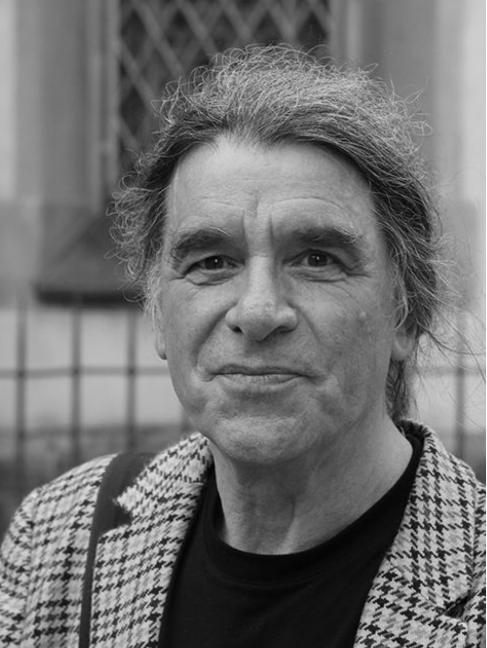Gerald Woehl
- Gerald Woehl is one of eight children born into the third generation of a family of musicians.
- His musical education was profoundly influenced by his father Waldemar Woehl.
- He trained as an organ-builder first in Germany and then continued in France at the Manufacture lorraine des Grandes Orgues, located in Boulay and known as Haerpfer-Erman.

His mentors were:
- Walter Haerpfer, artistic director of the Manufacture lorraine des Grandes Orgues.
As Haerpfer’s assistant he became familiar with French lifestyle and historic French organ tradition. - Georges Lhôte, a renowned free-lance organ-builder, who introduced him to French symphonic organs.
- Günther Späth, in Ulm, for drawing, painting and sculpture.
- Ms. Grünewald, in Marburg, for singing.
At the end of the sixties, he settled in the university town of Marburg an der Lahn, where he founded his workshop for organ-building.
- In 1981 he became a recognized restorer of musical instruments and member of the VDR (Vereinigung der Restauratoren für Museen und Denkmalpflege, Fachgruppe Musikinstrumente).
- In 1982, together with the harpsichord and fortepiano-maker Monika May, he set up an independent workshop for the restoration of keyboard instruments: for museums, for private collections and for his own collection.
- In 2004 he founded an additional workshop in the UNESCO world heritage site of Sanssouci in Potsdam.
His own work has been greatly inspired by Paris in the sixties. His personal conversations with Olivier Messiaen, especially about the tonal aspects of his organ works, has influenced his instruments to this day.
His designs have been inspired by Le Corbusier’s Modulor, as exemplified in the latter’s concept for the Havre Eglise Sainte-Jeanne-dArc.
Marie-Claire Alain was another influential source of inspiration. He assisted her during recordings and concerts of her brother Jehan Alain’s organ works. His friendship with Helga Schauerte-Maubouet led to a recording of Jehan Alain’s complete organ works in Viersen.
Tonal and technical innovations were also discussed with Jean Guillou.
Every organ produced in Gerald Woehl’s workshop is based on a well-defined musical concept, demanding an individual approach for each instrument. On the one hand, all-encompassing dignity of sound is rooted in his French experiences. On the other hand, it is Bach’s music, with which he had been confronted since childhood, that led to the construction of the Bach-organ in the Thomaskirche, in the jubilee year 2000.
Woehl’s musical interests span a wide range, from Bach and the 18ᵗʰ century, through German and French romantic instruments, to contemporary and avant-garde music and their appropriate instruments. Concerts and recordings by internationally prominent organists are a testimonial to the world-wide renown of the organs produced in the Woehl workshop.
His son Claudius May Woehl has been active in the workshop since 2014. Based on the long traditions of the workshop, he brings his own creative impulses to the development of contemporary instruments for avant-garde music.
The Woehl workshop has trained a number of musicians, organ and instrument-builders, organ consultants, restorers and heritage preservationists.
Woehl collects historic keyboard instruments: organs, square pianos, fortepianos and harmoniums. He has a large collection of scores and first editions. Some of these belonged to his father Waldemar Woehl and now form the basis of his library.
His personal interests include opera, especially Richard Wagner. Next to his profession, his greatest interests have always been his family and friends.